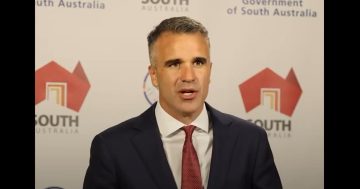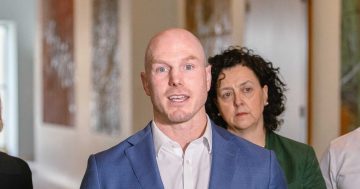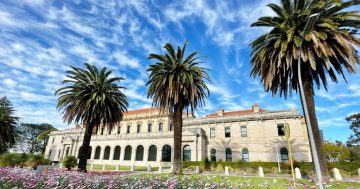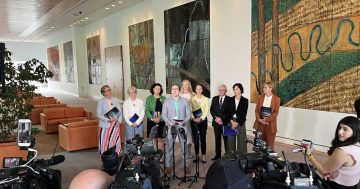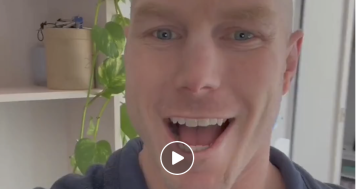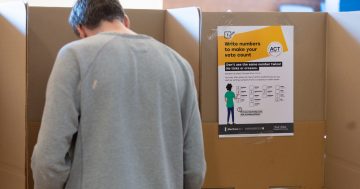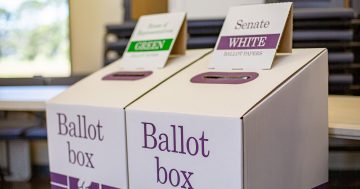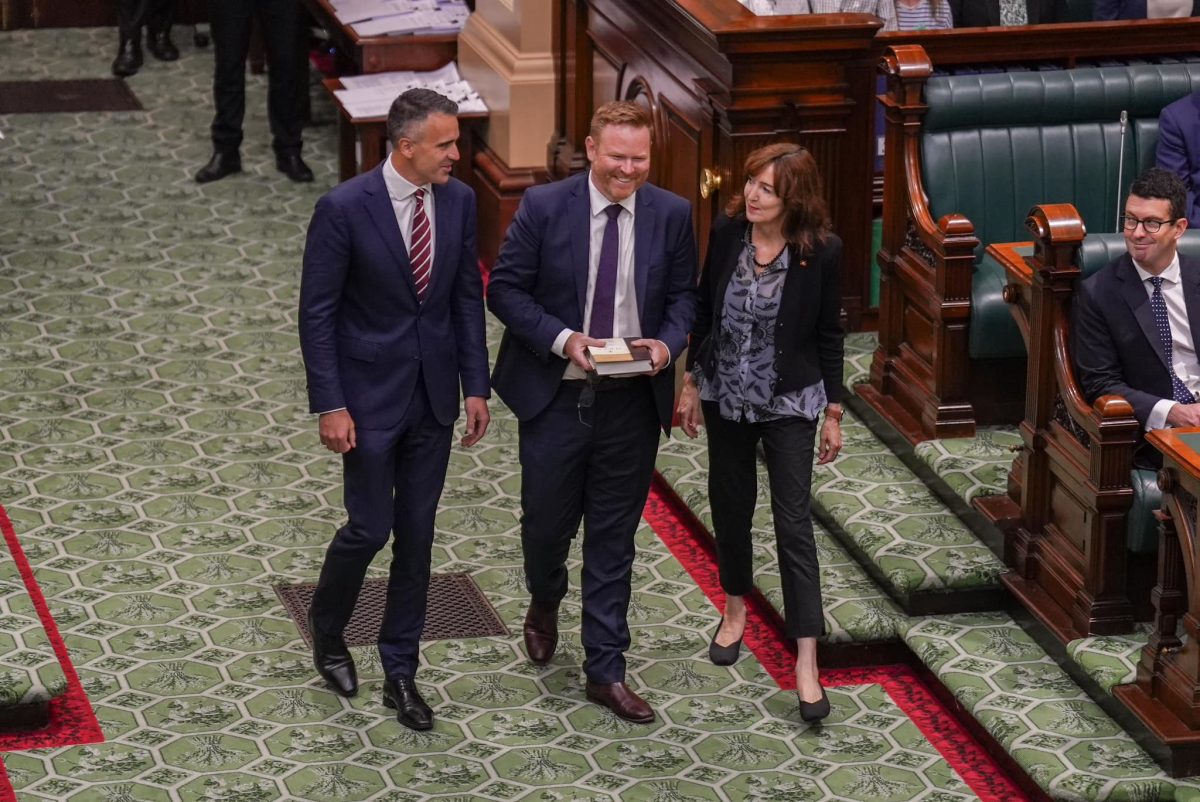
Premier Peter Malinauskas recently welcomed Alex Dighton MP to parliament, who just won a by-election for the electorate of Black. Photo: Facebook.
The South Australian Government has passed world-leading legislation that will prohibit the giving and receiving of electoral donations and gifts to registered political parties, Members of Parliament and candidates.
As the last week of parliament wrapped up, the Labor Government managed to secure support from the Liberal Party, Greens and other members of the Crossbench to pass the Electoral (Accountability and Integrity) Amendment Bill 2024.
Its provisions are set to take effect ahead of the 2026 state election and include strict penalties for those seeking to circumvent the donation ban; mandatory expenditure caps on parties, candidates and third parties; and advance payments to new entrants to the political process, such as independent candidates.
Third parties, including businesses, unions and think tanks, will also face limits on the value of donations. While new entrants are entitled to receive donations of up to $5000, they will also be subject to a spending cap.
However, all candidates are still able to make full use of volunteers.
Premier Peter Malinauskas said this reform was not in his government’s immediate political interests – “but it is the right thing to do”.
“South Australians rightly expect that their politicians should be focusing on the issues that matter to them, not spending their days chasing dollars.”
Despite the legislation having reportedly taken into account advice and feedback from constitutional experts, the Solicitor General, Electoral Commission, a panel of experts and democracy groups, the Australia Institute claims these dramatic changes to electoral law are compromised, unfair and have been rushed through.
The think tank’s Democracy & Accountability Program Director, Bill Browne, said behind the proposed ban was around $18 million in new taxpayer funding for political parties and candidates, of which “the vast majority goes to the two major parties”.
“This legislation will make election campaigns and politicking in South Australia bigger and more expensive than ever – but with the public picking up most of the tab,” he said.
“In the house of review, parliamentarians described these dramatic changes to South Australian democracy as ‘rushed’, ‘a bit of a leap of faith’, an ‘election vanity project’, ‘Hobson’s choice’ and ‘Sophie’s choice’.
“That should set off alarm bells that this risky experiment needs to be rethought.”
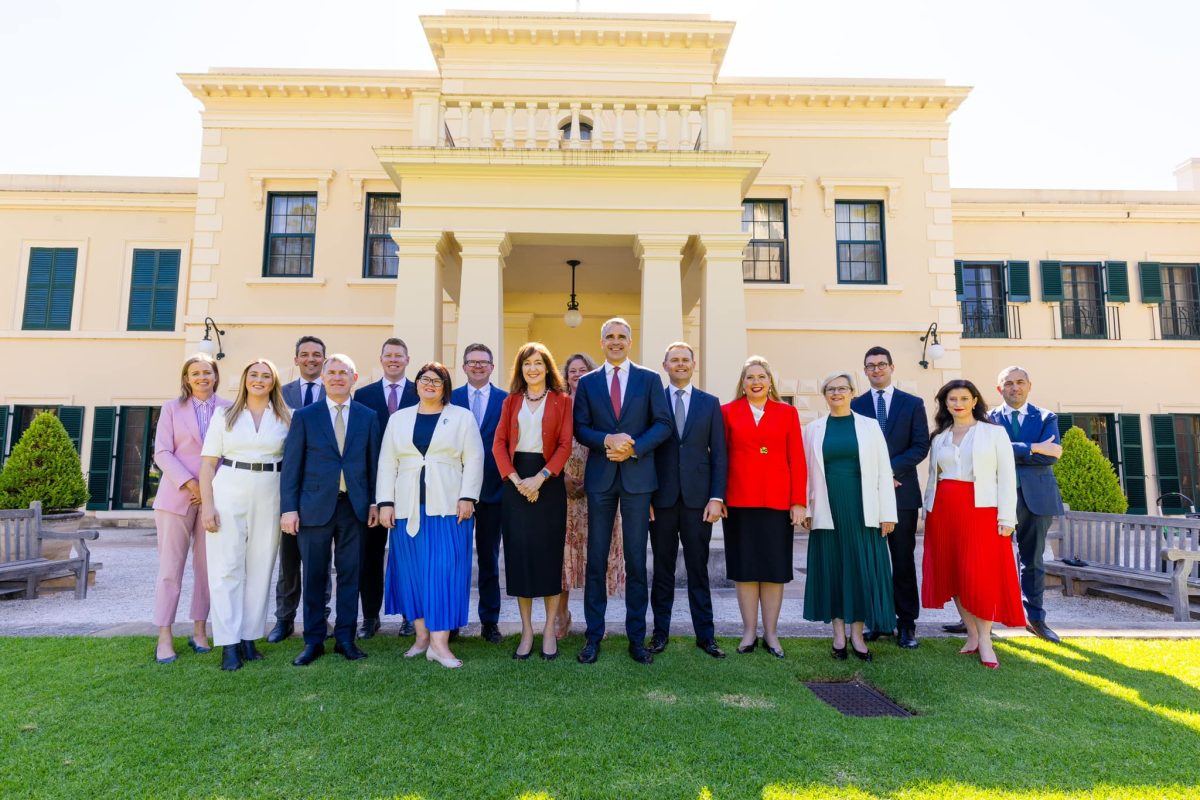
The newly passed legislation provides a restructure and mandatory application of the public funding model, which is currently based on the number of votes received at previous elections. Photo: Facebook.
According to the Australia Institute:
- The proposed laws have not been the subject of a parliamentary inquiry, which are normal for even minor changes to electoral laws, and these changes are among the largest ever in the state
- The South Australian Government conducted a secret, internal consultation; later reporting confirmed that the majority of submissions it received were opposed to the proposed laws
- The government’s independent review recommended administrative funding be decreased, from $1.4 million a year for each major party to $1.2 million – instead, it was increased to $1.6 million
- This alone gives Labor and Liberal an additional $3.2 million every four years
- The proposed laws increase major party administrative funding in South Australia by 66 times compared to 10 years ago
- The proposed laws introduce “nominated entities” to grandfather in assets of major parties
- And there is no principled reason for the special allowance for parties with exactly two MPs, it exists only to paper over the fundamental problems with a per-MP funding model.
Mr Browne called on the State Government to test the robustness of the proposal through a parliamentary inquiry, “at the very least”.
“Trust is earned, and South Australia’s parliamentarians can earn public trust by subjecting new money for politicians to the same scrutiny as they would any other law.”
The State Government conceded this significant reform taking effect on 1 July next year, may be subject to legal challenge, including via the High Court. It also noted a statutory review of the bill’s operation would be completed within 18 months of the poll.
Other “democratic” reforms were passed during the State Parliament’s last sitting week for the year, including:
- A new ban on unsolicited robocalls from political parties will impose fines of up to $5000 for individuals and $10,000 for a party or organisation
- Laws prohibiting the use of AI to generate electoral advertisements or deepfakes will impose the same fines as above
- Allowing pre-poll votes to be counted on polling day
- Banning the display of federal electoral corflutes (consistent with state election arrangements)
- And providing telephone assisted voting for sight- and motor-impaired electors.


